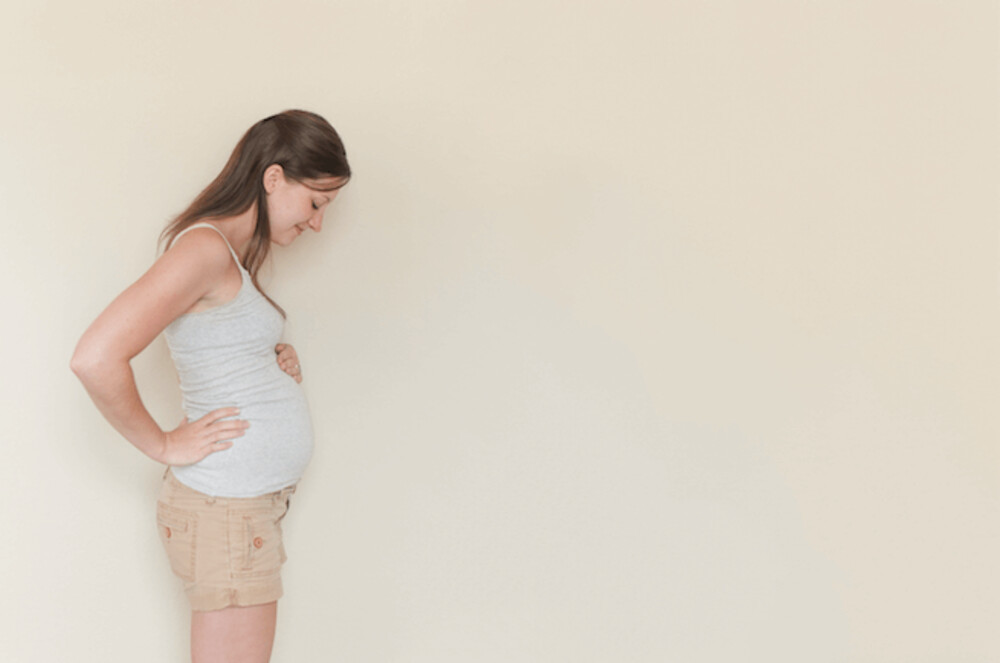
Hashimoto’s disease, sometimes referred to as Hashimoto’s thyroiditis, is an autoimmune disorder that affects the thyroid gland. Autoimmune conditions are the result of your immune system producing antibodies that attack your own tissues. Hashimoto’s disease means white blood cells have attacked the thyroid enough to slow it down, and it can lead to infertility or complications during pregnancy if left untreated.
Hashimoto’s Disease vs. hypothyroidism
Hashimoto’s is a disease, while hypothyroidism is a thyroid condition that can develop because of it. Not everyone with Hashimoto’s disease will develop hypothyroidism, but it is the most common cause. If you have an underactive thyroid, or too little thyroid hormone in your blood due to an issue like Hashimoto’s, the body is unable to function normally. Symptoms of hypothyroidism often include fatigue, weight gain, dry skin, mood swings and irregular periods causing infertility.
Can I get pregnant with Hashimoto’s disease?
Yes, but since Hashimoto’s disease is linked to infertility it can make getting pregnant more difficult. That’s because decreased levels of thyroid hormone interfere with ovulation. If a woman is anovulatory, or not ovulating, there is no egg released for fertilization by sperm. Without fertilization, pregnancy cannot occur.
How does your thyroid affect your pregnancy?
Women can develop hypothyroidism during pregnancy. If untreated, it can increase the chance of miscarriage, premature delivery and preeclampsia, which is a dangerous rise in blood pressure during the third trimester. There is also a higher risk of birth defects, intellectual and developmental issues for babies born to women with thyroid disease.
Is pregnancy safe with hypothyroidism? If treated, yes. The problem is that while it’s not especially difficult to treat, it often goes undiagnosed. Many symptoms of hypothyroidism and Hashimoto’s mimic first trimester complaints like fatigue, so a woman may not even know she has it until later in the pregnancy. Experts say that someone with a high risk, past history or symptoms of Hashimoto’s or other autoimmune diseases should have thyroid-stimulating hormone, or TSH, and thyroid blood tests done prior to conception, and thyroid function during pregnancy should be checked every 6-8 weeks. Hashimoto’s after pregnancy can still be an issue, but TSH levels often adjust by the third trimester.
Hashimoto’s pregnancy diet
While treatment of Hashimoto’s disease and hypothyroidism typically includes medication or Levothyroxine sodium pills, many find that prioritizing certain nutrients in their diet also help them to manage the condition.
Iodine is a mineral that is vital to the production of thyroid hormone and can be found in table salt, seafood and eggs.
Selenium has been shown to decrease the number of antibodies attacking the thyroid and can be found in eggs, chicken, beef, pork, and Brazil nuts.
Zinc is another essential element in producing thyroid hormone. It can be found in lentils and beans, shellfish, beef, and chicken.
A Paleo-inspired diet, which eliminates inflammatory grains, dairy and processed foods that can trigger an autoimmune reaction, is safe during pregnancy and can help keep Hashimoto’s in check.
Can Hashimoto’s cause miscarriage?
When the thyroid is functioning at a lower than normal level, it will impact other functions of the body; pregnancy is no exception. Evidence is still inconclusive regarding first trimester miscarriages, though a Chinese study in 2014 found that women with “both subclinical hypothyroidism and thyroid autoimmunity have a greater risk of miscarriage between weeks 4 and 8.”
There is greater evidence suggesting second-trimester miscarriages are more common. A 2000 study found that “women with untreated thyroid deficiency had a significantly increased risk of second-trimester miscarriage or stillbirth.” In 2005, a study found that “subclinical hypothyroidism could mean an increased risk of placental abruption and preterm delivery, both of which can result in later pregnancy loss.” Clearly, Hashimoto’s and hypothyroidism are conditions that should be addressed and treated as quickly as possible during pregnancy, if not before, to reduce the risk of miscarriage.
Assisted reproduction as an alternative
Because issues with thyroid hormones often lead to trouble conceiving, many women turn to assisted reproduction as an alternative. A 2016 study found that “having autoimmune thyroid disease did not seem to negatively impact the success of the fertility procedure itself and there were no differences identified in number of eggs retrieved, fertilization rates, implantation rates or confirmed pregnancy rates.” There was, however, a higher miscarriage rate and lower live birth rate. For women with severe thyroid issues who have struggled to maintain a healthy pregnancy, gestational surrogacy can be a viable option.
If you’d like to learn more about building your family through surrogacy, contact our team. We are here to answer your questions and help determine your best course of action.